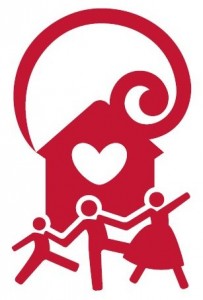Their role and duties include:
- To represent all the members who elected you to represent them
- To keep the association focused on achieving its aims as set out in the constitution and supporting documents
- To be open, transparent and accountable to the members
- To conduct the business of the association to the highest standards.
- To positively promote the work of the association to members and others organisations
- To take joint responsibility for the finances of the association
- To ensure that the association meets all its legal and funding criteria
- To accept joint responsibility for the association’s decisions
- To maintain a long term view for the association and leave a good legacy for those who follow
Critical Duties:
- To ensure the committee functions properly
All committee members have a duty to ensure that the committee is functioning properly, within the guidance laid out in the governing documents. This includes making sure that all members have the opportunity to participate in discussions; ensuring that the officers (chair, secretary and treasurer) and committee members are doing what they agreed; challenging poor practice in meetings; monitoring your work; other committee members and making sure that you inform the membership of what you are doing.
- Acting as a representative of your community
This is why you were elected in the first place! Whilst your role is voluntary the members do want to see ‘professionalism’ in your approach in representing them. This would include making sure that you regularly speak to or consult with your membership to check ideas and understand what their needs are; tell them of the associations plans and other work you are involved with on their behalf; act within the code of conduct of the association at your meetings and others; make yourself available if you have specialist knowledge or skills which will benefit the committee; attend meetings regularly and participate in discussion; not seek personal benefit from your involvement.
- To ensure the committee is planning effectively to achieve the aims set out in the governance documents
This is crucial to the success of the committee and how you are perceived by the members. Some key duties here include having a clear understanding of the associations aims; know what the financial situation of the association is and what potential funding opportunities exists; accepting some responsibility for key areas of the workload, not just relying on the officers to do everything; fully participating in discussions and decisions; supporting the collective decision, even if you did not agree with it; putting forward suggestions at meetings; constructively challenging yourself and colleagues.
Quality, skills and knowledge required:
Team Player: Includes;
- Respects confidences
- Accepts collective decisions
- Respects differences
- Works well with others
- Willing to learn new skills
- Supportive of committee colleagues
Qualities: Includes;
- Experience of being a St Albans resident
- Enthusiastic
- Cares about the community
- Is approachable for committee and other members
- Patient
- Likes a challenge
Organisational knowledge: Includes;
- Experience of committees
- Various skills – finance, secretarial, event planning, publicity, etc – and willingness to share them
- Governance – constitutions, code of conduct, equal opportunities

